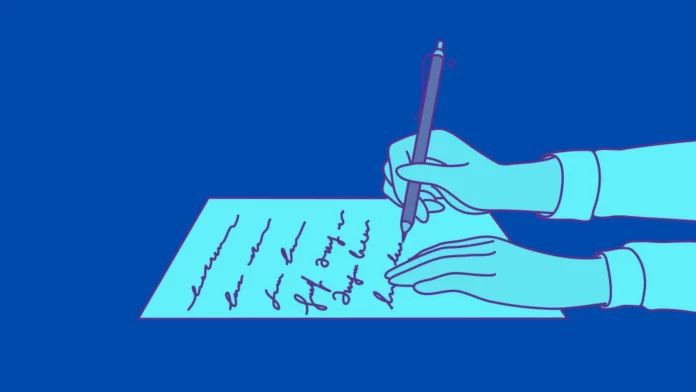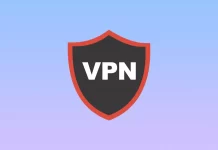Writing a thank-you note to your boss is more than just a formality; it’s an opportunity to express genuine gratitude. The key is to strike the right balance. Your note shouldn’t come off as overly sweet or as an attempt to flatter your way into good graces. Instead, it should reflect a sincere appreciation for something specific your boss has done. When your boss reads it, the goal is for them to understand that you’re acknowledging a real action or quality, not just trying to look good in their eyes.
As for what to include in the note, be clear and specific about what you’re thankful for. Generalities can make your message lose its impact. Also, brevity is your friend; keep it concise but meaningful. If appropriate, a touch of humor can add warmth, but it should fit the context and the relationship you have with your boss. And your sign-off should align with the overall tone of your message, neither too formal nor too casual.
Should you write the boss a thank you note?
The idea is good if you have a reason. If you don’t have it and want to write it just for a good look, I advise you to reconsider. People and your boss is probably the smart one, usually great at detecting what’s genuine and from the heart and what is faked. So don’t try to write it if there’s nothing to write about.
But if your boss really helped you, for example, assisted in some project, that would be a good gesture. But you need to think about everything: if you send an appreciation note, it should look like you really appreciate your boss.
That’s not just about the content but about everything: how you deliver it, what you write, and something like that. That’s even about time; your note should be not too late but also not too early. Another way, it will look like it was written in a rush.
And take your relationships into account and your company culture. If you’re communicating with your boss daily and have lunches together, maybe a “thank you note” is a bad idea because it won’t fit your relationship. If you have a good one and are close enough, maybe a text with the simple “Thank you for your help/your decision/your idea” will be enough.
How to send an appreciation note to the boss
Sending a thank-you note to your boss isn’t just a “write and forget” deal. The way you deliver it matters, too. You’ve got options, so let’s break it down.
Email is quick and efficient, especially if your boss is always on the go. It’s also easier to edit and revise. But it can get lost in a crowded inbox. So, make that subject line count. Something like “Appreciation for your Support” will do the trick.
Handwritten notes? They’ve got that personal touch. It shows you took the time to sit down and write. But be careful with your handwriting; if it looks like a chicken scratch, maybe stick to typing. Drop it off where your boss will find it, like their office desk or in their mailbox at work.
Timing is also key. Don’t wait weeks to send your note. Do it while the good deed is fresh, but not so fast that it seems rushed. A day or two after the event or helpful action is usually a good rule of thumb.
And remember, it’s not just what you say but how you say it. Keep it genuine and to the point. Your boss will know if you’re just blowing smoke. So, make it real, make it timely, and deliver it in a way that fits both your style and your boss’s.
And once again, if you have a friendly relationship with your chief, the letter of appreciation will sound like something from another world. So if you’re on a short distance with them, maybe the best way is to say “Thank you” in your face or write a short text that will better fit the situation.
What is an example of a thank you message for your boss? (15 examples)
That’s just examples. That’s not mockups to take, adjust, and send to your boss. Just to take a look and understand how it may look. There are tons of such examples on the web; they’re usually all the same with the same structure:
Hello, boss
Thank you for [this], that’s helped me [because]
Sincerely,
Me
Extremely simple.
- “Dear [Boss’s Name],
Thank you for your guidance on the recent project. Your insights were invaluable, and I truly appreciate the time you took to help me succeed.
Best,
[Your Name]”
Straightforward and specific, this note makes it clear that you’re thankful for concrete help on a project.
- “Hi [Boss’s Name],
Just wanted to say thanks for being so understanding about my need to leave early last Friday. It made a world of difference for my family.
Cheers,
[Your Name]”
Casual and personal, this note shows you value a work-life balance and appreciate your boss’s understanding.
- “Dear [Boss’s Name],
Your support during the team meeting was much appreciated. It’s reassuring to know you have my back.
Sincerely,
[Your Name]”
Acknowledges the boss’s public support, which can be particularly impactful.
- “Hey [Boss’s Name],
Your advice on handling difficult clients was spot-on. Made my week a lot easier!
Thanks,
[Your Name]”
Informal and immediate, this note thanks the boss for advice that had a quick, positive effect.
- “Dear [Boss’s Name],
Thank you for the opportunity to lead the new project. I learned a lot and felt truly engaged in my work.
Best regards,
[Your Name]”
It shows gratitude for a growth opportunity and subtly indicates you were up to the challenge.
- “Hi [Boss’s Name],
Thanks for the quick response to my query yesterday. Helped me meet my deadline!
Best,
[Your Name]”
Concise and timely, this note appreciates the quick help that had an impact on your work.
- “Dear [Boss’s Name],
I wanted to express my gratitude for the raise. It means a lot to me and serves as motivation to continue doing my best.
Sincerely,
[Your Name]”
Thanks to the boss for a raise and indicates it serves as motivation for future work.
- “Hey [Boss’s Name],
The team lunch was great! Thanks for treating us.
Cheers,
[Your Name]”
Informal and group-focused, this note shows you value team morale.
- “Dear [Boss’s Name],
Your constructive feedback during my performance review was very helpful. Thank you for helping me improve.
Kind regards,
[Your Name]”
Shows you value constructive criticism and see it as an opportunity for growth.
- “Hi [Boss’s Name],
Thanks for being flexible with my work schedule this month. It’s helped me manage my other commitments.
Best,
[Your Name]”
Thanks to the boss for flexibility and for highlighting its positive effects on your life outside work.
- “Dear [Boss’s Name],
I appreciate the extra time you gave me to complete the project. Your understanding made a big difference.
Sincerely,
[Your Name]”
Formal and specific, this note thanks the boss for an extension and its positive impact on the project.
- “Hey [Boss’s Name],
The training session you organized was really informative. Thanks for that!
Cheers,
[Your Name]”
Casual and educational, this note shows you value learning opportunities.
- “Dear [Boss’s Name],
Thank you for acknowledging my hard work in the team meeting. It means a lot to be recognized.
Kind regards,
[Your Name]”
Shows gratitude for public recognition, which can be motivating and set a positive example for the team.
- “Hi [Boss’s Name],
Your guidance on my career path has been invaluable. Just wanted to say thanks.
Best,
[Your Name]”
Thanks to the boss for career guidance, indicating a deeper level of engagement and mentorship.
- “Dear [Boss’s Name],
The resources you provided helped me excel in my recent presentation. Thank you for your support.
Sincerely,
[Your Name]”
Formal and specific, this note thanks the boss for resources that led to a successful outcome.
Why these examples won’t help?
You don’t need examples. Otherwise, you can open an AI bot and have it write a thank you to your boss. The whole point of any communication at all is that it is special and personal. You know what I mean?
Taking an example from the Internet, modifying it a bit, and sending it to your boss is not what you need simply because it won’t be sincere.
Of course, it all depends on your boss and what kind of boss that is. If it’s a big company and the boss has an inflated sense of self-importance, he’ll probably be pleased.
But if your boss is sensible and intelligent, he will realize that it is a rewritten couple of lines from the Internet. So the main thing you need is to make it personal. So that the boss realizes it’s the real thing, not a piffle.
Is it OK to text a thank-you note?
Absolutely. But only in case you use texts to communicate with your boss. If you have their number but never use it, it would be strange to send a text. But if texts are how you communicate, that’s the right way to say “thank you.”
Here’s an example of such text from our workflow; it was sent from Ivan Makhynia to Valeriy Artamonov.
“Thank you for the corrections. I really overlooked the table formatting, but now it looks great and as it should be. Sorry for the headache.”






